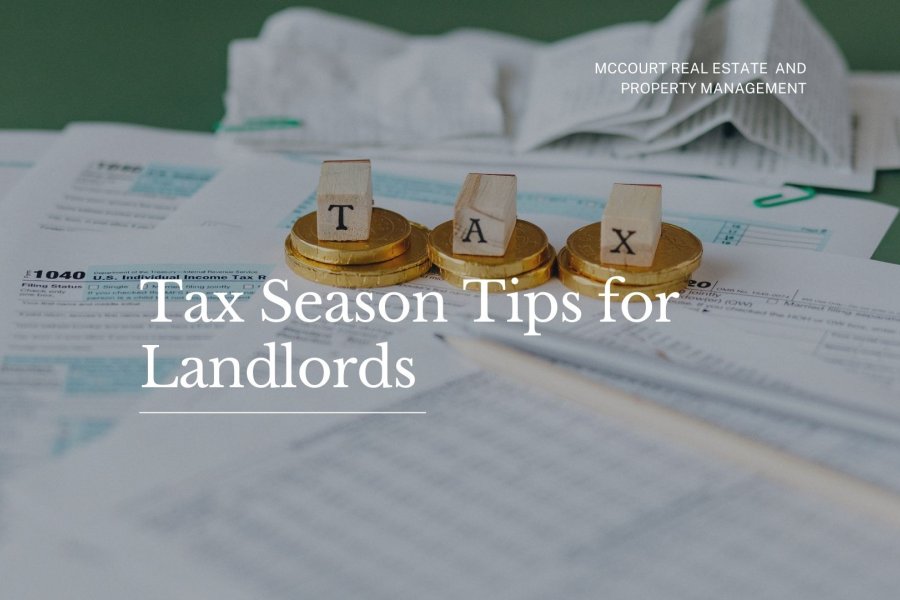
Key Takeaways
- Maximize Deductions Through Tracking and Categorization: Save on taxes by carefully tracking all deductible expenses. It's essential to distinguish between repairs and improvements to avoid IRS issues and maximize tax benefits.
- Depreciation is a Powerful Tool: Depreciation allows landlords to reduce taxable income annually based on the property’s value, even if its market price increases.
- Professional Help is Key: Hiring a tax professional and partnering with a property management company can make tax season much less stressful. Property managers provide accurate financial reports and documentation throughout the year, while tax advisors ensure compliance and help identify savings opportunities specific to rental property owners.
For rental property owners, tax season can be either an opportunity or a headache. With the right preparation and strategy, it’s possible to maximize deductions and save money. However, missing important details or making mistakes can result in penalties or paying more than you need to.
Whether you're a first-time landlord or have a growing portfolio, let McCourt Real Estate and Property Management help you keep your finances in check while optimizing your returns.
Contact Us Today!
Here’s what landlords need to know to make the most of tax season:
Know What Counts as Rental Income
Before you can start calculating deductions or filing tax forms, you need to understand what the IRS considers rental income. This includes the monthly rent you receive from tenants, but also less obvious items such as advance rent payments, security deposits, and any services provided by tenants in lieu of rent.
It’s important to keep detailed records of all income received throughout the year. Accurate recordkeeping helps ensure you report everything properly and reduces the risk of issues during a tax audit.
Track All Deductible Expenses
Rental property owners are allowed to deduct a wide range of expenses that are considered ordinary and necessary for managing their rental. This includes mortgage interest, property taxes, repairs, maintenance, utilities (if paid by the landlord), insurance premiums, advertising costs for vacancies, legal fees, and professional services such as accounting or property management.

Improvements like kitchen renovations, however, are not immediately deductible. Instead, they are capitalized and depreciated over time. Always keep receipts, invoices, and proof of payment to support your deductions and make tax filing smoother.
Understand Depreciation Rules
Depreciation is one of the most powerful tools landlords can use to reduce their taxable income. It allows you to deduct the cost of your rental property (excluding land value) over a set period.
Every year, you can claim a portion of the property’s value as a depreciation expense, even if the property has increased in market value. Keep in mind that when you sell the property, the IRS may require you to recapture the depreciation, which could affect your capital gains tax. Nonetheless, taking full advantage of depreciation while you own the property can significantly lower your tax liability.
Repairs vs. Improvements
Many landlords struggle with the difference between a repair and an improvement. Repairs are expenses that restore an item to its original condition, such as fixing a leaky faucet or replacing a broken door. These are fully deductible in the year they are incurred.
Improvements, on the other hand, are expenses that add value, extend the life, or adapt the property to a new use. These might include replacing all the flooring or remodeling a bathroom. Improvements must be depreciated over several years rather than being deducted immediately.

Classifying these costs correctly is important to avoid issues with the IRS and to ensure you’re taking deductions in the proper way.
Use a Separate Bank Account for Rental Income and Expenses
One of the simplest ways to stay organized at tax time is to have a dedicated bank account for your rental property. This allows you to keep personal and business finances separate and makes it easier to track rental income and expenses throughout the year.
Learn More About Our Services!
When everything runs through one account, pulling records, identifying deductions, and producing financial reports becomes much more efficient. It also gives your accountant or tax professional a clearer picture of your property’s performance.
Pay Attention to Recordkeeping Requirements
The IRS doesn’t require a specific format for your records, but they do expect you to maintain adequate documentation. This includes bank statements, canceled checks, receipts, lease agreements, and any other documents that show proof of income and expenses.
Store both digital and paper copies of your documents, and make sure they’re organized by category and date.
Having good records won’t just help during tax season—it also protects you in case of an audit or financial review.
Quarterly Estimated Tax Payments
If rental income is a significant part of your earnings and no taxes are being withheld, you may be required to pay estimated taxes quarterly. Failing to do so could result in penalties and interest at the end of the year.

Quarterly payments are usually due in April, June, September, and January. Check with your tax advisor to determine whether quarterly payments are necessary for your situation.
Travel-Related Deductions
If you drive to your rental property for maintenance, inspections, showings, or meetings, you may be eligible to deduct mileage. For 2024, the IRS standard mileage rate is 67 cents per mile, but check the current rate each year.
In addition to mileage, you may be able to deduct other travel-related expenses like tolls, parking, or even airfare and hotel stays if you own out-of-town properties. Just make sure the travel is primarily for business purposes and keep records of your trips.
Hire a Tax Professional
The tax code is complex, and real estate has its own unique rules and opportunities. Working with a tax advisor who has experience with rental properties can help you catch deductions you may have overlooked and make sure you are compliant.
A good tax professional can also advise you on how to structure your rental business and how to plan for long-term tax efficiency.
Work with a Property Management Company
One of the best ways to streamline your tax season is to hire a professional property management company. These companies often provide monthly financial statements, year-end reports, and 1099 forms that simplify your recordkeeping and tax preparation.
They also track your income and expenses in real time, reducing the risk of missed deductions while staying up to date with federal and state laws.

In addition to financial reporting, a property manager can handle rent collection, maintenance requests, tenant screening, and more—freeing up your time and reducing stress. For landlords with multiple properties or limited time, partnering with a property management company can be a smart move both financially and operationally.
Bottom Line
Tax season doesn’t have to be stressful if you stay organized, understand your deductions, and seek professional guidance. Keeping detailed records, separating your finances, and making use of depreciation can all contribute to a lower tax bill and a more profitable rental business.
Contact Us Today!
Consider working with a property management company that can handle not only the day-to-day operations of your rental but also provide the financial reports and documentation you need to file your taxes with confidence. Contact McCourt Real Estate and Property Management today!